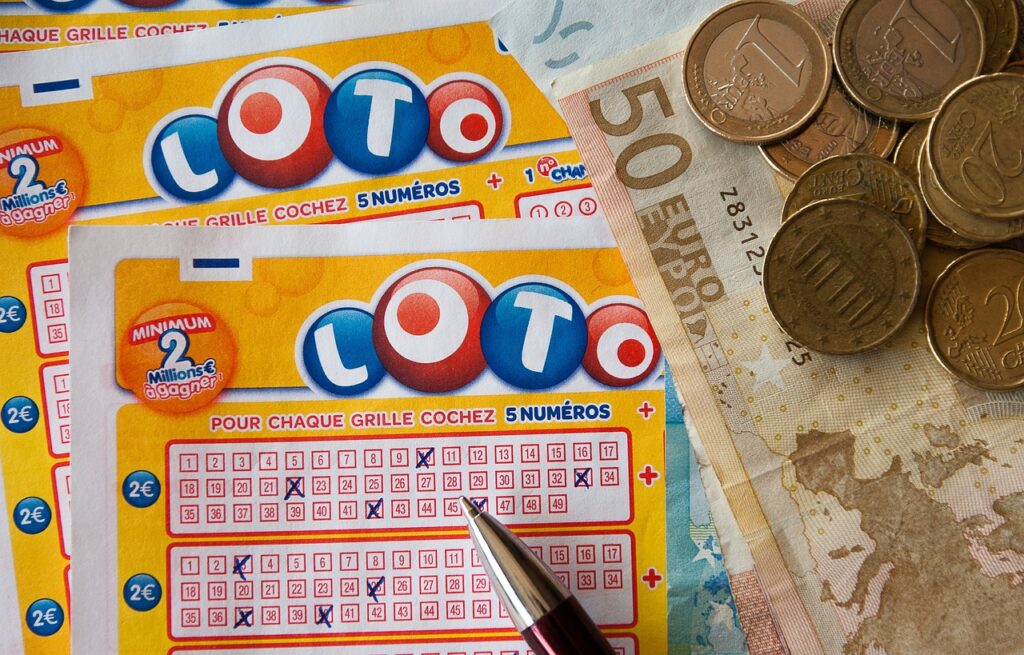For those of you that have been through a multiple-offer process on a house, you probably have your own stories on how the evening went down.
Did you “win” with the first bid?
Were you asked to improve?
How much did you come up, and how did you decide on that?
For those of you that haven’t been through the process, let me help prepare you…

I know some of you are reading the blog title and already working yourself into a tizzy.
“Second round of bidding? What’s wrong with one round?”
“Why do you need a second round?”
“Goddam greedy sellers!”
What can I say, folks? That’s just the way it works.
I’ll be on B.N.N. on Monday morning to talk about “Realtor Tricks.”
I told the producer straight-up, I don’t like the idea of “tricks,” and that we could just as easily call them “strategies.”
For example, with respect to the old “under-price and hold back offers,” that’s far from a trick. It’s not fooling anybody. It’s a strategy, and as I said above, that’s just the way it works.
It’s the way it was when I got into the business in 2004, and it’s just the way it is now.
We’ve accepted it.
And as for the “multiple rounds” of bidding, buyers need to accept that too.
It doesn’t always work that way, however.
I sold a house last Sunday night, and the agent told me, “We’re simply going to work with the highest offer.”
But is anything that simple in real estate? Was that a trick? Was that just the buttering up of the bun, before the big meal?
Low and behold, she called me two hours after offers were submitted, and said, “Congratulations, we’re going to accept your offer.”
There was no second round of bidding, and believe it or not, she told me that there were three offers that were “really, really close.” She even told me how much we won by!
But that’s a rare case, and most of the time, especially with freehold homes in the core of Toronto, there is a second round of bidding in multiple offers.
So what’s my advice for buyers?
How can I best prepare you?
The very first thing you have to do is simple: accept it.
Don’t blow up. Don’t get angry. Don’t get emotional.
When you submit your offer for $855,000 on that $729,900 listing, and your agent calls you and says, “There were nine offers, and they’re working with the top three – giving us all a chance to improve,” do not let anger take over.
Some buyers get frustrated and say, “What, they can’t take our goddam $135,000 over asking? That’s not enough for them?”
But you have to remember that it’s not personal. It’s business. And as I keep saying, it’s just the way that it’s done.
I had a buyer once tell me, “I’d rather lose in the first round than win in the second,” because she was so offended that the seller came back to the top three buyers for more money.
But that was emotion talking. Could it be anything else? Isn’t this cutting off your nose to spite your face?
Buyers need to accept a second round, but do not expect one unless told.
A classic mistake among buyers is expecting a second round, and saying, “I’ll start at $900,000, and then I’ll come up to $930,000.”
Sure, great.
But what if there’s a $915,000 bid, and the listing agent simply takes the highest offer?
I’ve had this happen before. Once. It was enough to ensure I never let it happen again. My buyer was insistent on “opening” with a lower bid, and increasing gradually. The listing agent told me there would be a “one shot deal” process ahead of us, and my buyer didn’t listen. Our situation was similar to the one above; I believe he offered $700,000, saying he’d go to $740,000, and we lost to a bid of $720,000.
As I said – accept a second round, but don’t expect one.
And that’s my advice to agents too!
I brought out a condo listing on Wednesday afternoon, and by Wednesday night, I had three offers.
I told all the agents they got one shot, and once they were all aware how many offers there were, and they had submitted their “final” bid, we would work with what we had.
That’s exactly what I did.
My buyer accepted the highest offer, and I called that agent to let her know, then the first agent with the lower bid to let him know, then the next agent.
And that agent basically cried into the phone.
He said “please” about a dozen times. “Pleeeeease give me another shot, three minutes, that’s all I need.”
It’s funny, because I rarely come across an agent, who loses in competition, knows he or she didn’t lose by much, and doesn’t say that he or she could get more money.
Monday morning quarterback.
Saturday morning lottery number picker.
Now as for what to do in the second round, that’s probably more important.
My second nugget of information: if you don’t improve, you’ve lost.
If there are nine offers on a house, and you’re in the “top three” and sent back to improve, you have virtually no shot at winning if you don’t improve.
Why?
Well first of all, I would estimate that 80% of buyers improve. There’s no science behind that number; it’s an estimate. But it’s based on my experience as a listing agent, seeing what happens in second rounds, but also as a buyer’s agent, seeing how many of my clients walk away.
So if 80% of buyers are improving, then we can work through an example, and see how it’s impossible to win without improving.
Let’s say there are three offers left: $923,000, $931,000, and $933,000.
Those three buyers are sent back to improve, and you’re one of them.
There are three scenarios:
1) You’re the lowest.
This is easy to explain.
If you’re the lowest, and you don’t improve, then you lose.
2) You’re the middle offer.
If you’re the middle offer, and you don’t improve, then you lose to the higher offer. Easy.
And there’s a very good chance that the offer behind you comes up in price, and you end up in third place.
2) You’re the highest.
You have the $933,000 bid, and you’re in first place.
But as I said, 80% of buyers improve.
If the offer behind you improves, you’re beat. There’s no way they come up $1,999 or less.
If the offer in third place improves, you’re still probably beat. Rarely would a $923,000 offer come up only $5,000. The expectation for a “jump” at that price point is $10,000, which I’ll get to in a moment.
So even if you’re in first place, the odds of you staying in first place without improving are slim to none.
So to reiterate: if you don’t improve, you’ve lost.
And I’m not saying you have to improve. Do as you see fit, I’m not here to price gouge, or push anybody. I’m just trying to teach you, the way it is.
Now my third piece of advice, would be with respect to how much to improve, if you choose to do so.
Again, you work through the example above.
I would tell my client that if there are three offers, we’re either in 1st, 2nd, or 3rd.
If we’re in first, we need to improve enough to keep us in first.
If we’re in second, we need to catch up to the highest offer, and then beat them on improvement.
If we’re in third, we need a massive jump, and it might be one that’s too uncomfortable to make.
So now you look at how much you need in each scenario.
If we were the highest, at $933,000, I would figure we have two offers behind us – maybe $932,000, but maybe $920,000. I would figure that the most likely number to jump is $10,000, with an outside shot at $15,000, and at least $5,000.
So if somebody was behind us, and they jumped $15,000, how much would we need to still have them beat?
If we were the second highest, at $931,000, we have to play offence and defence, and keep one offer away, but also trump the other.
And if we’re in third place, again, we’re probably too far off to make a jump that’s comfortable, although you never know – sometimes in this situation, my buyers might say, “We want this goddam house, and there were nine offers, now there are three, so let’s take a leap and bring this home.”
It’s up to them.
“I lay it out, for y’all to play it out.”
Back to the example above – I would tell my clients what I feel their odds are, in three scenarios:
1) No increase. They have a 0% chance.
2) $5,000 increase. They have a 10% chance.
3) $10,000 increase. They have a 33% chance.
4) $15,000 increase. They have a 50% chance.
And a 50% chance at a house, in this market – when there are nine offers, is pretty damn good.
So whether we have the offer that’s $923,000, or the offer that’s $931,000, or the offer that’s $933,000, a $15,000 increase, I feel, would give us a 50% chance.
Obviously if we had the lowest offer, and went from $923,000 to $938,000, we’d likely lose to one of the higher offers, after they’ve improved.
If we had the $931,000 offer, and we ended up at $946,000, I feel as though we’d likely have the $933,000 offer beat, assuming they improved the “standard” $10,000, or went conservative with the $5,000 bump.
And if we had the $933,000 offer, and we ended up at $948,000, we’d have an even better shot at beating that original $933,000.
As you can clearly tell, there’s a lot of guesswork here, and a lot of assumptions.
But it’s a blind process. That’s just the way it is.
But when you’re asked to improve your offer in a “second round,” you would be shocked at how many times the listing agent calls you back twelve minutes later and says, “How we doin’?” as though your clients don’t need more than a commercial break to make their decision.
So if you’re a buyer for a freehold property in this market, and you’re in competition on offer night, remember:
1) You need to accept that there will be a second round; don’t let emotion take over.
2) Accept a second round, but don’t expect one. Put your best foot forward.
3) If you make it to the second round, and you don’t improve, you’re out.
4) Either walk away, or give yourself a shot. Don’t add $1,000 – go for it, or go home. Play out the scenarios, as I’ve done above, and you’ll see how it works.
Lastly, don’t shoot the messenger.
I didn’t create this market, I merely work in it.
This is free advice, and good advice, and you don’t have to take it.
But get angry, get frustrated, and hate the system we have, and you’ll never get into a house in this market…































Pete
at 8:40 am
Don’t points 2 & 3 contradict each other? If you put your best foot forward (which I’m taking means your max price), then how can you improve?
Mike
at 3:11 pm
I agree Pete. When you put in your first offer you’re putting in what you feel is your best offer. If someone comes back and asks you to improve on that offer they have in essence rejected your best offer.
David says that rejecting that process is getting emotional but he’s a Real Estate Agent and it’s not his money, in fact if you better your offer he makes more money. In fact, rejecting the request to submit a second offer is business and not emotions. You’re first offer you weighed the market and where similar houses have sold for and you’ve factored in your financing in order to submit your best offer; that’s the business approach. To come-back and ask you to increase your offer is only asking you to take the practical side out of it and bid totally on emotion.
Realtors that encourage you to submit a second offer are being disingenuous with you; if the were good agents they’d tell you to stick with your first offer even if it means losing the property. Silly little tricks like, “another $10,000 is just $30 a month, less than a cup off coffee. Are you willing to lose your dream house for less than a cup of coffee a day?” or “another hundred grand is only $300 a month, you take your lunch to work and you’ll never notice it”.
This is what’s wrong with the Toronto housing market, people are afraid to lose out on their dream and are being preyed upon by Realtors who have no incentive to actually get the best price for their buyers.
It’s sad to see David use terms like “win” for when Buyers he’s representing, have to pay more than what they originally felt comfortable offering. Maybe the next video you do comparing life to real estate could have you dealing with a stock broker who tells you a stock is worth ten bucks but you should offer twelve so that you can “win”.
moonbeam!
at 3:20 pm
Well I think you need to re-read David’s last 4 lines… it’s free advice and don’t shoot the messenger!
Real estate millennial
at 3:39 pm
To be fair the difference in commission with an added 5-20k is only an extra 125-500 in the realtor’s pocket and that depends on his split with the brokerage and also doesn’t account for taxes. Your other points are fair but just remember the realtor works for you so you can say “no I don’t want to spend more this is my number and I’ll make concessions elsewhere”.
Mike
at 8:16 pm
REM
Yes, I know it’s not a lot of money to the Realtor but have you ever seen someone turn down a hundred bucks? The real point is that not only are they getting an extra $125-$500 but they increase their chance of a sale if you blow past your budget. You don’t enter the second round that means the Realtor now has to take you around more houses and prepare more offers ; in other words more work. Not a lot of people will turn down a hundred buck for less work. The problem is you hire an agent to act on your behalf, in your interest; they have a fiduciary duty but the compensation structure doesn’t reflect that.
Moonbeam
I get it, David is the tall daisy. He’s just saying what happens whereas most agent are content to let the little secret slide. But you can’t expect to escape critique by saying “don’t shoot the messenger”. The whole ‘I didn’t create this, I just work here’ attitude didn’t work in Nuremberg and it doesn’t work here. David talks about wanting change but in the same breath admonishes Buyers for being “emotional” and not “business” like when he himself has the concept backwards. I’d be happy if he came out and said what he’s actually saying here, if you want to buy a house in this market you have to be prepared to get emotional and not look at it from a business point of view.
Now I re-read the last four lines like you asked, so do me the favour and re-read this part, “I had a buyer once tell me, “I’d rather lose in the first round than win in the second,” because she was so offended that the seller came back to the top three buyers for more money.
But that was emotion talking. Could it be anything else? Isn’t this cutting off your nose to spite your face?”
Is it emotion? Or is it someone acting rational and practical; someone who has put forth there best offer based on the information they had and advice of their advisor, only to come up short? Yet David ridicules them for not putting up more money simply to get the deal done. Therein lies my issue with the messenger.
Free Country
at 10:17 pm
Thanks Mike, I agree with you. Your first offer should be based on what you are willing and able to pay for the house. Just because others can bid more does not change your budget or financial capability. Regardless of whether the seller says he/she is simply going to take the best offer or intends to seek multiple rounds of bidding, your strategy as buyer should simply be to offer what you can afford and what you think the house is worth — since you’ve done your research and due diligence, right? If it’s not accepted, then just move on. There will be more houses on the market next week.
Kyle
at 10:06 am
IMO, one’s max price should never be based on one’s max affordability. Anyone spending the max they can finance is crazy in my book. So putting those who can’t afford to go higher aside, max price is really just a pre-conceived psychological number of the max a person *thinks* the place is worth. If you get into the second round, the market is telling you that it’s worth more than that number. At that point it’s up to that buyer to decide whether they want to *rethink* what the place is worth or just let it go.
Condodweller
at 9:12 am
Assuming that a good agent knows what the value of the home is and only shows houses that are going to go in that price range, i.e. shop for 750k listed homes when they can only “afford” 900k. then the “standard” 15k increase shouldn’t be an issue at about $65/month. The key here is to look in a lower price range to enable one to come up significantly to secure the home. It’s all about setting expectations by the agent. I realize the trouble with this is that most people can’t afford current home prices and need to go to their max just to get into a home. You know where I stand on that; if you need to go to your max(pre-approved amount) you shouldn’t be buying.
L
at 9:16 am
We recently bought a detached in the east end, and had six bidders. The agent told us she was going to take the highest offer in the first round, and actually did. We went in with our best offer, what we were willing to pay for the house without regret, and won. It was our first offer on a house as well, and we won first round (feel free to hate us now).
A coworker recently bought in Caledon, and was told the same thing. BUT she had the agent come back for 2 more rounds, after saying they were going to take the first round highest! Frustrating especially, since on the third round, my coworker didn’t improve again and still got it (within about 2 minutes, clearly they were the ones playing the game at that point).
You never know what to expect, even when you’re told what to expect.
Xi Dada
at 9:27 am
When I was buying my house, I always put in my max price that I was willing to pay for the property. Missed a couple homes, then the third was a charm. Eventually you will find something that your max bid will secure, or you will realize that you simply don’t have enough money to get what you want. For those that do decide to do “just a little bit better”, enjoy living in excess debt and wracking yourself financially.
natrx
at 11:07 am
I recently went through this. Put in my offer. Was in the top 3. Put in second bid (we were told it would work this way) at slightly higher, but not more than what I would consider Fair Market Value, based on recent trends of selling vs taxes accessed.
I learned one thing.. this causes people to just blow up whatever it ‘should’ be worth. Desperation kicks in for those whom have lost out a couple of times and the disparity between the winning and next could be 2-3% of the listing price.
Here’s the funny thing: this has caused prices to spike into the double digits as it became a game of Chicken.. how close are you willing to go to your MAXIMUM borrowing limit? Another antidote.. just because you’re willing to max out your borrowing limit on a property, the appraised value by the bank can be less as they do not agree with a buyer’s desperate reaction. With new highs being set without logic, this I’m sure have made many lenders nervous.
Finally, this has contributed to the Stress Test rule as the game of Chicken has gotten out of hand. Sure, there will be adjustment, but more importantly, I think it will scare people as there is so much uncertainty regarding the loans.. no more from the Bank “here you go.. almost no questions asked”. With the US poised to increase rates, which would 100% have an impact on 5-yr rates (including Canada’s), that will constrict the spirit to make out for many. This will have an upward impact as it will curtail the optimism even for those over 20% downpayment.
Vlad
at 2:17 pm
Multiple offer scenario – is it pretty much the same for any desirable property nowadays? For example, would it be the same for 1.5 million Bay/Bloor condo? I mean there’s not so many buyers for that price range probably, so should we expect a crazy competition as well or just a regular old-fashioned sale?
Ralph Cramdown
at 9:45 pm
It’s funny that things that we call “just business” would NEVER be accepted in the commercial side of the business. Imagine if a commercial broker put out a tender on a $25 million property and then said “we’re sending the top three offers back because there’s always a bit more gas in the tank!” Nobody would ever return his phone calls again, and he might well be sued by one of the prospective buyers.
Kyle
at 9:37 am
As someone who has actually transacted many times in this market (rather than someone who only comments and theorizes about it), i appreciate this inside advice. David is simply summarizing what it takes to land a home in this market, based on all the deal flow he sees and for those that make it to a second round this is invaluable knowledge.
Deciding whether and how much to improve the second round is ultimately up to the buyer, he’s just giving you the odds.